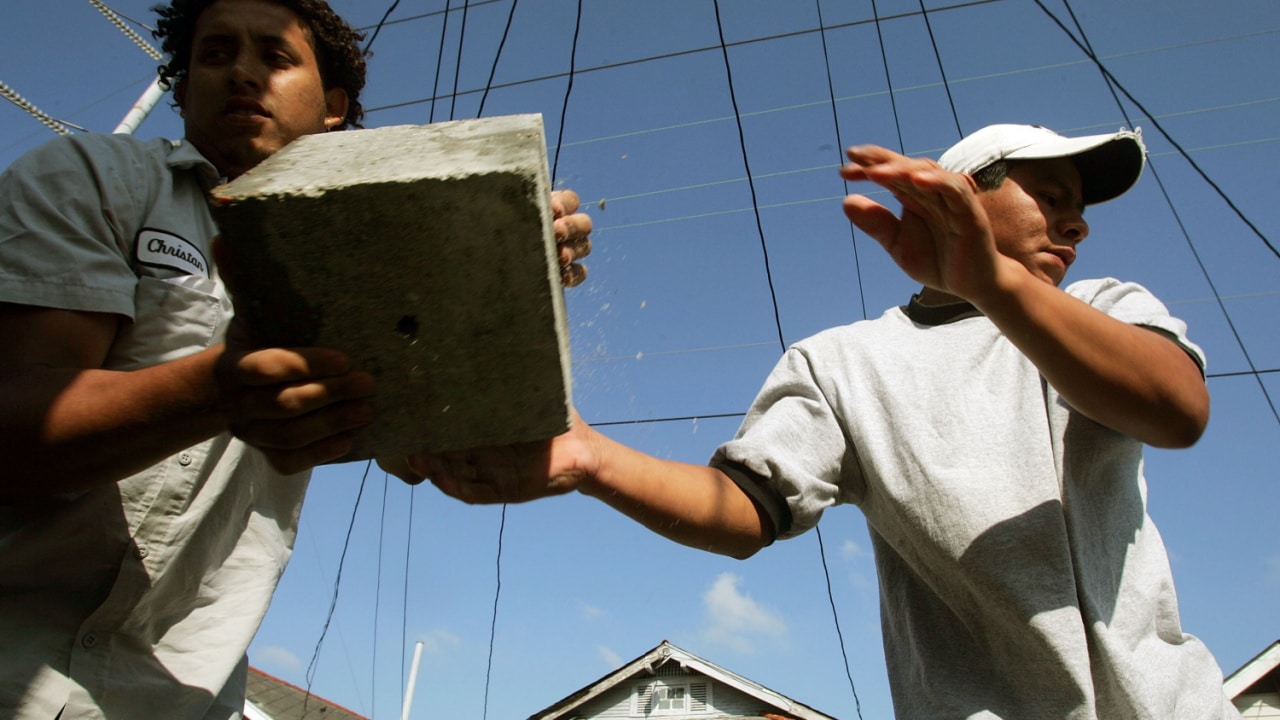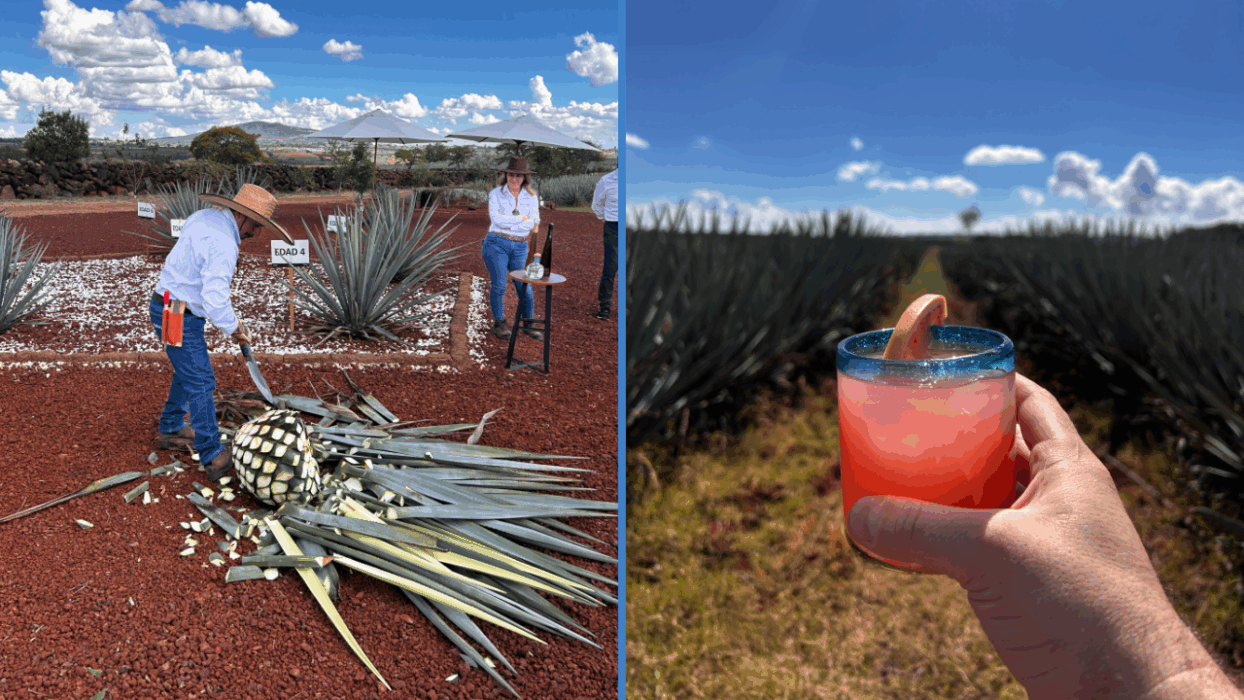
Katrina’s Forgotten Workforce: Hondurans in New Orleans and the City’s Recovery
Hulu’s new five-part series, Hurricane Katrina: Race Against Time, takes viewers into the chaos of the 2005 storm. It revisits the days before and after the levees failed, with raw archival footage and first-hand accounts. Director Traci A. Curry told the Clarion Ledger the disaster was “a failure of the structures and the institutions that are meant to keep people safe and protected.”
But for many longtime residents, the series also stirs up memories of a community whose story rarely makes the headlines: the tens of thousands of Hondurans in New Orleans whose lives were upended twice, first by Hurricane Mitch in 1998, then by Katrina in 2005.
How Hondurans in New Orleans built a home far from Honduras
Honduran migration to New Orleans stretches back over a century. According to the Historic New Orleans Collection, the rise of the banana trade in the early 1900s brought workers from Honduras aboard United Fruit Company ships. By the 1960s, New Orleans had the largest Honduran community in the United States.
By the time Katrina hit, Democracy Now! estimated 120,000 Hondurans lived in the metro area. Many were refugees from Hurricane Mitch, which killed up to 10,000 people in Honduras and devastated the economy. Others had come for work in Louisiana’s ports and fisheries.
Jorge Vitanza, then a Honduran consular agent, told Democracy Now! there were “about 82,000 people… from Honduras in New Orleans. Plus, the people that don’t have documentation, we can go… talking about 100,000.”
Katrina scattered Hondurans in New Orleans, and fear shaped their choices
In the days after the storm, many Hondurans avoided shelters. Rumors of immigration raids spread, and fear of deportation kept people moving. Santa, a Honduran immigrant, told Democracy Now! through Vitanza that “a lot of people… left the shelters because somebody came and told them that the immigration were looking for them.”
While the Department of Homeland Security issued assurances that deportations would not happen, Vitanza confirmed some were sleeping in shelters only at night, then leaving before dawn. Pastor Melissa Gutierrez, who ran a shelter in Gonzales, Louisiana, said some undocumented Hondurans could apply for food stamps, “but FEMA, they cannot apply for FEMA… they had to provide a Social Security [number].”
Hondurans in New Orleans played a critical role in rebuilding after Katrina
Within a year of the storm, more than 10,000 Hondurans and Mexicans moved to New Orleans for reconstruction work, according to The Advocate and local reporting. The Jesuit Social Research Institute found that by March 2006, nearly half the reconstruction workforce was Latino, and over half of those workers were undocumented.
At an ecumenical prayer service in 2020 honoring Katrina’s immigrant workers, Pastor Shawn Anglim told attendees, “[Latino immigrants] came to this city and rebuilt our houses of worship, your homes, your children’s schools, and building after building. This city is as much theirs as ours… muchas gracias!”
Immigrant leaders like Leticia Casildo recalled arriving “two months after Katrina, when the city was completely destroyed with no place to eat or to rest,” but staying because “we fell in love with the city.”
The other side of the story: wage theft and exploitation
NBC News reported that thousands of Latino immigrants, including many Hondurans, were victims of wage theft during the rebuilding. Loyola law professor Luz Molina called it “the wild west of labor enforcement” after the Bush administration temporarily suspended verification of immigration status for workers.
Honduran worker Santos Alvarado told NBC he and his relatives were owed $12,000 for a remodeling job. Contractors often threatened to call immigration when workers demanded pay. In some cases, workers faced threats of violence.
By 2015, the Congress of Day Laborers had formed to help recover stolen wages. Still, Molina said, “If you took the Latino presence out, this city would not have recovered the way it did. There’s absolutely no way that there would’ve been enough workers.”
Hondurans in New Orleans now face a new threat: the end of TPS
This summer, the U.S. Department of Homeland Security announced it would end Temporary Protected Status for Honduras, first granted after Hurricane Mitch. The decision affects more than 70,000 Hondurans nationwide, including many in New Orleans.
Construction worker Alberto Castillo told WVUE he fears losing “my dream of becoming a commercial pilot” if his TPS expires. Santos Canales, who moved to New Orleans in 2006 to help rebuild after Katrina, said, “I had the chance to have such a different and better life here.”
They have 60 days to find a legal way to stay. Castillo says they plan to fight in court. “We don’t accept their decision.”
The story of Hondurans in New Orleans is part of the city’s Katrina legacy
The Hulu documentary centers on institutional failures and resilience after Katrina, but it also offers an opening to remember the contributions of communities often left out of the mainstream narrative.
From arriving on banana boats in the early 20th century to clearing flood debris after Katrina, Hondurans in New Orleans have been part of the city’s fabric for over a hundred years. As Casildo told the prayer service, “Just because someone does not have papers does not take away their humanity. Just because someone was not born in this country, it does not mean they do not love this country.”




